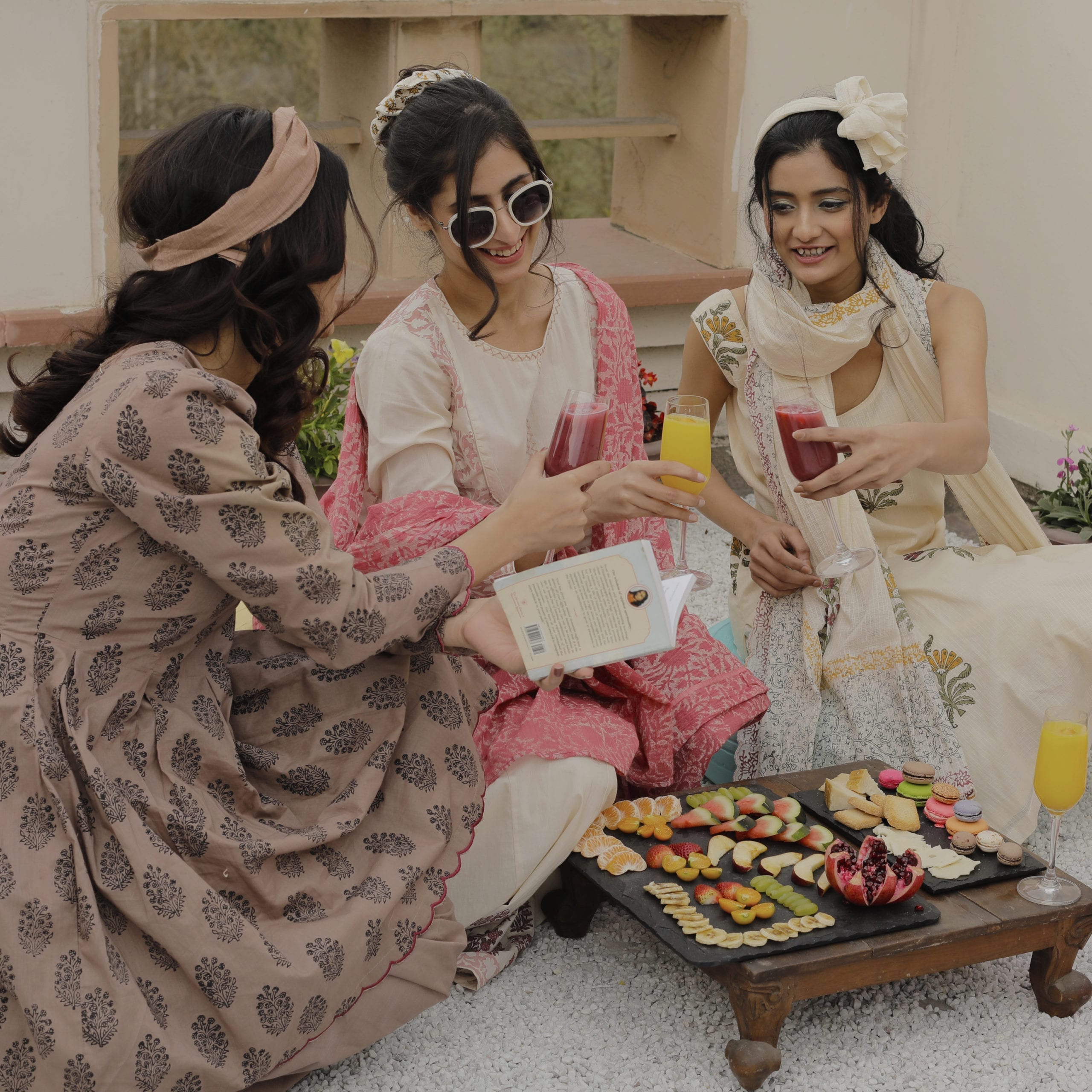Now more than ever, sustainability is the way forward for everything from fabrics and fashion, to fuel and fast cars. And this led The Channel 46 to Tjori—an Indian brand that’s focused on promoting traditional craftsmanship, heritage handicrafts and sustainable products.
We caught up with co-founder Mansi Gupta to address how Tjori’s making its mark in the world of fashion, and how aspiring entrepreneurs and students can take a cue.

1. What was the inspiration behind this brand?
The idea of giving our artistic and talented Indian craftsmen a global platform to showcase their skills was my biggest inspiration to create this brand.
2. How do you view the importance of sustainable and ethical products in today’s day and age?
The world is already damaged enough with everything from environmental pollution to climate change. Our only way to redemption is to use sustainable and environment-friendly products. A recyclable and reusable product is the need of the hour and not just a fashion statement.
3. Can you tell us about your work with local craftsmen and artisans?
We are a lifestyle brand that caters to the fashion and wellness category. We work with local craftsmen on every level, right from the fabric dyers to the hand block printing units, and even the hand stitching kaarigars that make our final garments.
The ayurvedic and organic wellness products all come from our ayurvedic specialist. Our best local artisan is Mrs Meena Rastogi, who makes handmade soaps with exotic fragrances like red wine, shea butter and fresh flowers. We work with many such talented people to curate a site that’s truly representative of our vision.
4. If someone wishes to enter this space of ethical and sustainable products, what would be your top 3 tips for them?
To enter any industry you need the 3 P’s, as I like to call it: Perseverance, persistence and permanence. Any new industry needs a lot of perseverance and dedication because you will face challenges on an everyday basis. Persistence when dealing with these daily challenges will keep you strong in your game. And last but not the least, permanence is the key for any newcomer to stay in the industry for the long haul. You need to permanently set your eyes on the goal and keep moving in that direction.

5. Can you recommend good universities, courses, or programs where an aspirant could get an education about sustainable fashion, beauty and handicrafts?
The programs at our esteemed universities of NIFT and NID have tried to incorporate these in the regular curriculum, so that it becomes necessary for all the students to understand the basics of the sustainable products. Some foreign universities in London offer some small online courses too, to help you strengthen your knowledge.
6. What are some fashion weeks or events a person should participate in to best showcase their line of ethical and sustainable products?
Any media platform is readily available for people showcasing their talents in this space. As the awareness around these products is slightly limited, I would suggest taking part in all events that come your way to show the idea of the product and its extensive need. A recognised event to be a part of would be Lakmé Fashion Week (LFW) or Wills Lifestyle Fashion Week (WLFW).
7. How do you incorporate sustainability in your everyday life?
You can’t think of sustainability as a singular element that you should or need to add in your life. It should be the way of life for every citizen of this world. The basic habits of conserving water, recycling old clothes, reducing waste generation, and using more environmentally-friendly products will all lead to a sustainable future.
8. Which designers or brands do you admire in this space?
Stella McCartney is the biggest name I can think of when we talk about designers who inspire me. The idea is to respect nature, and to respect the people who help nurture nature. Another designer I really look up to is John Patrick, who works with organic material in his collections.

9. What are your top 3 favourite pieces from Tjori, and why?
Juttis, baby apparel and serums; these are my favourite products from Tjori. The juttis are made using cruelty-free leather and come in amazing styles and designs, while not compromising the comfort quotient. The baby apparel is made out of organic fabrics like bamboo, which is a perfect choice for your child’s delicate skin. There is a wide variety of colours and designs to choose from that will keep your child rash-free and looking cute. And last but not the least, the face serums. They are made with cold-pressed natural oils that are suited for different skin types.
10. How can a person, as a consumer, incorporate making ethical and sustainable choices in their everyday life?
As I said, sustainability is not an element that can be incorporated into your life. It has to be a way of life and we could incorporate small habits that will help us be more sustainable everyday. Habits like conserving energy and water, recycling clothes, recycling garbage, donating things, and practicing minimalism are all good ways.
Images Courtesy: Tjori

